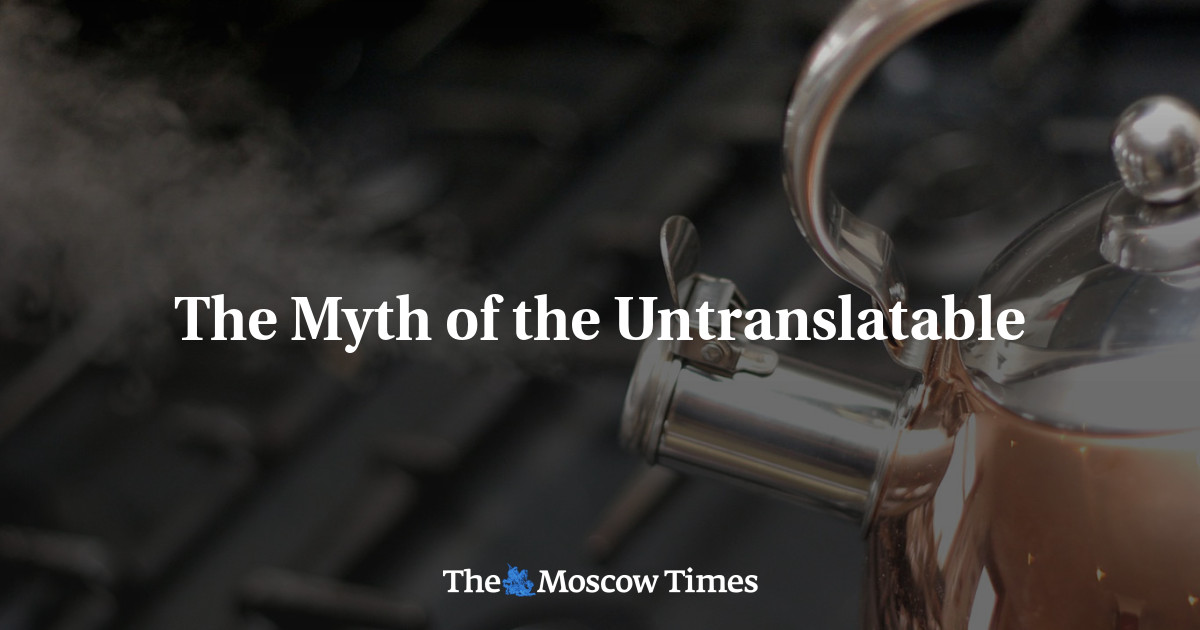
Сутки: 24 hours, day and night
The topic of “untranslatable words” makes me exceedingly cranky. First of all, there is no such thing as an untranslatable word. Really. There may not be one word in your language that corresponds to the meaning of the so-called untranslatable word. Or there might be a word equivalent in meaning but in the wrong register in your language (when, say the word you are translating is rather academic but a close match in the target language might be slangy). Or you might need to translate it with a descriptive phrase or even a sentence. But if you understand the foreign word, you can figure out how to convey its meaning, register, and even sound and rhythm in other languages.
That’s what translation is.
The other reason for my dislike is that “untranslatable words” are often pulled out of the hat as a kind of Trick the Translator test — a way of showing up the translator — or as a way of touting the superiority of the source language. But all languages have words that are unique. Words in every language combine a lot of information and meanings. It doesn’t make them “untranslatable.” It just means you will choose from several possible words or phrases in the target language, and one word in Language A may be translated by four words in Language B, depending on the context.
Take the run-of-the-mill Russian word отец, which matches up nicely with father, the man sitting at the head of the table: Мама была учительницей, отец инженером (My mother was a teacher, my father an engineer). Or a father is the founder of something: Пушкина — отцом русской поэзии (Pushkin is the father of Russian poetry). Or a father is leading the service in the local church: Отец Павел, что люди хотят узнать у священника? (Father Pavel, what do people want to learn from a priest?)
But the отец-father match isn’t perfect. In Russian отец can be a respectful way of addressing an older man: Отец, далеко ещё до деревни? (literally “Father, is the village far from here?”) In English we wouldn’t call a stranger “father.” So what does the translator do? Well, first you have to know who was speaking, the era, the intent and the register to come up with a translation of отец. If it was a very polite, formal person asking, he or she might say, “Sir.” A snotty teen might call him “Old man.” If it were in the 1950s in the U.S., it might be “Pops.”
You see? You can translate отец easily into English — but you don’t use just one word. And that’s just fine, because that’s how translation works.
Another example of an easily translated “untranslatable” word is сутки, which means a 24-hour period. Today the word only exists in the plural, but etymologists tell us that there was once the singular form суток, which meant “juncture” or “collision.” So сутки is when day and night meet. That is a lovely image, although most native Russian speakers don’t have poetry in mind when they use the word.
English does not have this exact word, but it can express the concept easily in several ways. In the hospital: Пациенты могут вставать и ходить уже на следующие сутки (Patients can get out of bed and walk around after 24 hours). Медсестра работает сутки через двое (The nurse works a 24-hour shift and then gets two days off). In other contexts: Он способен работать сутками и часто спит на кровати в своем кабинете (He is capable of working day and night and often sleeps on a cot in his office).
Another Russian word often on the list of the “untranslatable” is кипяток. It is derived from the verb кипеть (to boil) and means recently boiled water, boiling water or really hot water. English uses a few more words, but like in Russian there is often no distinction between “boiling” and “really hot.” For example, I’m sure that cities do not send boiling water through the pipes, but people say, Из крана течет кипяток! (The water from the faucet is boiling!) Sometimes they clarify it: Для приготовления лечебного чая, нужно использовать не сильный кипяток (To make a therapeutic tea you need to use hot but not boiling water).
There is, however, another usage of кипяток that should not be said around tender ears: писать кипятком. Literally “to pee boiling water,” it means to be delighted, to jump up and down for joy. Sometimes the act is expressed in English without the heat as a sign of great happiness — although usually describing your dog when you walk in the door at the end of the work day. With a human, you’d probably modify the image: Осталось пересмотреть второй фильм — с него я, помнится, писал кипятком (I’ve just got the second film to watch again. I remember I loved it so much that I was jumping out of my seat). Does that express the emotion? Is it about the same register? Yes, pretty much. Does it matter that you don’t have the same Russian image in English? No. It wouldn’t make sense, and a translation that doesn’t make sense is a bad translation.
Finally, there is another word — or rather verb pair — that always appears on these lists of “untranslatable Russian words”: опохмеляться/опохмелиться. This is the technique, known around the world, of diminishing the pain of a hangover — похмелье — by having a drink. It’s what you do the morning after the night before, a fine tradition in English-speaking countries called “taking hair of the dog [that bit you].” Один из симптомов алкогольной зависимости – желание опохмелиться по утрам (One of the symptoms of alcoholism is the desire to start the morning with the hair of the dog).
This might also be a symptom of a cranky translator.





